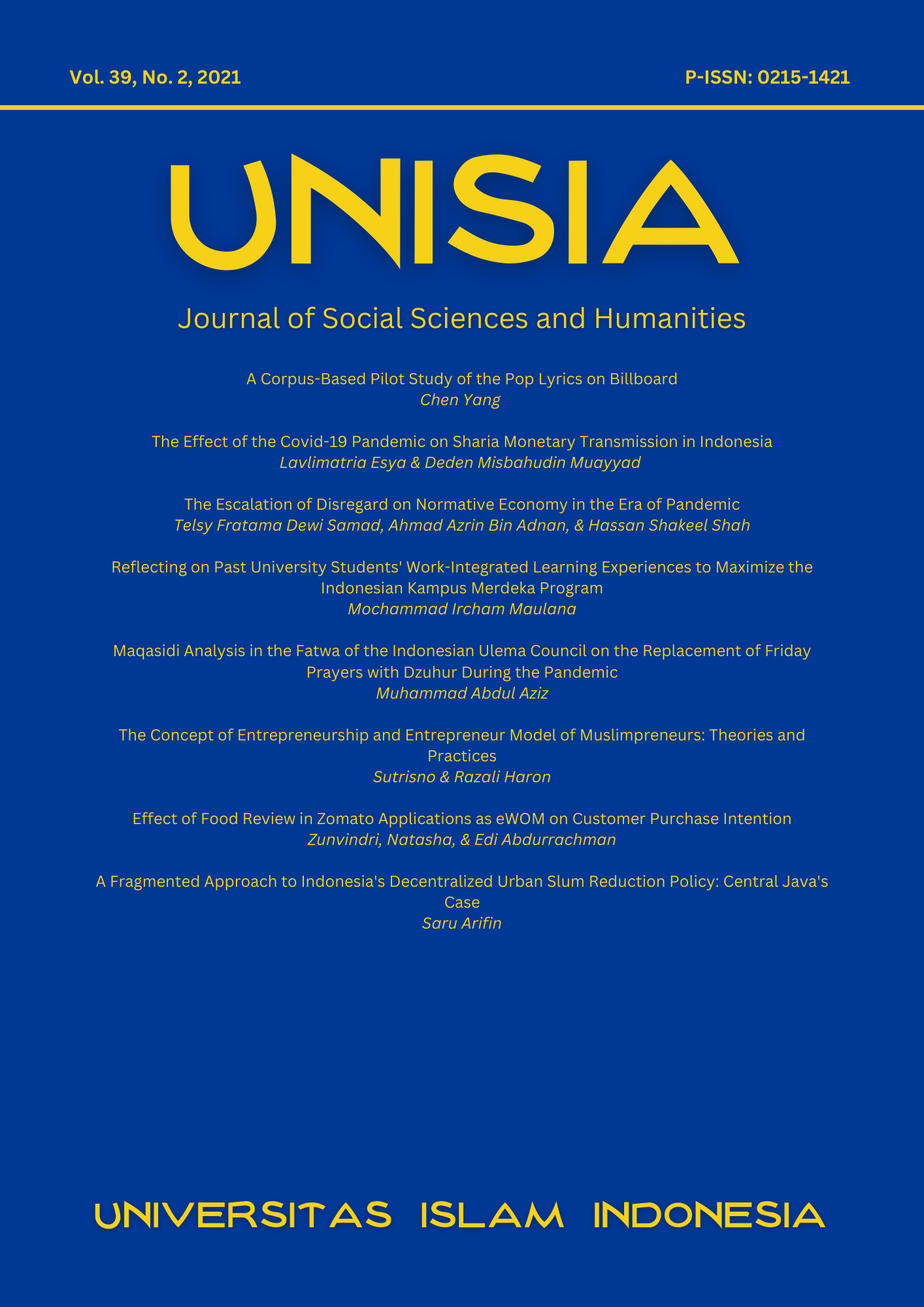Main Article Content
Abstract
The Indonesian government, through the Ministry of Public Works and Public Housing ('PUPR'), launched a significant campaign in 2015-2019 to eradicate slums from Indonesian cities, termed "Kota Tanpa Kumuh" ('Kotaku') or City Without Slums. While this endeavor has succeeded in physically reducing the number of slums in Indonesia, the objective of totally eliminating slums within that time frame is unattainable. Many Indonesian municipalities continue to have slum communities with a variety of socioeconomic effects. The article argues, through the use of a case study in Central Java Province, that the government's failure to achieve its objective of zero slums in Indonesian cities is due to the Kotaku program's approach being incompatible with that of other ministries. Due to the fact that the problem of slum settlements encompasses a range of societal concerns such as poverty, low income, culture, and even criminality, merely altering the housing in which people live from uninhabitable to respectable is insufficient. Meanwhile, the root causes of slums continue to be ignored. As a result, this article proposes that slum eradication be integrated and sustainable through the continual involvement of numerous essential parties, including NGOs and universities.
Keywords
Article Details
- Authors retain copyright and grant the journal right of first publication with the work simultaneously licensed under a Creative Commons Attribution License that allows others to share the work with an acknowledgement of the work's authorship and initial publication in this journal.
- Authors are able to enter into separate, additional contractual arrangements for the non-exclusive distribution of the journal's published version of the work (e.g., post it to an institutional repository or publish it in a book), with an acknowledgement of its initial publication in this journal.
- Authors are permitted and encouraged to post their work online (e.g., in institutional repositories or on their website) prior to and during the submission process, as it can lead to productive exchanges, as well as earlier and greater citation of published work.




